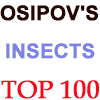Epiphora rotunda
|
|
Updated as per personal communication with Stefan Naumann
Updated as per personal communication with David Bygott (Ngorongoro, Tanzania, February, 2009), March 2009
|
Epiphora rotunda
Naumann 2006

Epiphora rotunda male, Mount Kenya East, Kenya, 2900m, October 2001
This site has been created by
Bill Oehlke at oehlkew@islandtelecom.com
Comments, suggestions and/or additional information are welcomed by Bill.
| TAXONOMY:
Superfamily: Bombycoidea, Latreille, 1802
Family: Saturniidae, Boisduval, [1837] 1834
Subfamily: Saturniinae, Boisduval, [1837] 1834
Tribe: Attacini, Blanchard, 1840
Genus: Epiphora, Wallengren, 1860
|
MIDI MUSIC
Wind Beneath My Wings
copyright C. Odenkirk
MIDI CITY
ON.OFF
<bgsound src="wings.mid" LOOP=FOREVER>
|
DISTRIBUTION:
Epiphora rotunda,
(wingspan: males: approximately 102mm; forewing length 61-65mm),
is a relatively large species
compared to other members in the antinorii group. Wings are
noticeably fuller (not so elongated) and more rounded. Hence the
species name rotunda.

Epiphora rotunda male, sorry, image not available.
The postmedian line intersects the inner margin at very close to a
ninety degree angle and continues almost straight to the costa. In
most other antinorii group species, the pm line is much more oblique,
almost paralleling the outer margin.

Epiphora rotunda male, Ngorongoro Crater, northern Tanzania,
February 20, 2009, 2300m,
courtesy of David Bygott,
digital repair and tentative id by Bill Oehlke.
The submarginal ornamentation
is broad and brown in colour rather than the carmine or reddish brown
found in similar species.

Epiphora rotunda male, sorry, image not available.
It has been taken in Ngorogoro,
Tanzania (February 29, 1989), and
from Mt. Kenya East,
West Chogoria, Kenya (October 3-5, 2001 at 2900m).

Epiphora rotunda male (verso), Ngorongoro Crater, northern Tanzania,
February 20, 2009, 2300m,
courtesy of David Bygott,
significant digital repair (outer margin may be compromised) and tentative id by Bill Oehlke.
FLIGHT TIMES AND PREFERRED FOOD PLANTS:
There appears to be at least two flights, one in February-March and
another in September-October.
Epiphora rotunda
larvae probably feed on Citrus, Maesopsis eminii, Paullinia,
Zanthoxylum macrophyllum and Fagara macrophylla.

Epiphora rotunda male, Ngorongoro Crater, northern Tanzania,
2005, 2300m,
courtesy of David Bygott,
slight digital repair and tentative id by Bill Oehlke.
ECLOSION, SCENTING AND MATING:
Epiphora rotunda
females extend a scent gland from the
posterior tip of the abdomen to call in the night-flying males.The
pair remains coupled until the following evening.
The wings of the female are more rounded than those of the male.
EGGS, LARVAE, COCOONS AND PUPAE:
The cocoon is double
walled and resembles the cocoon of the Hyalphora.
Larval Food Plants
It is hoped that this alphabetical listing followed by the
common name of the possible foodplant will prove useful. The list is
not exhaustive. Experimenting with closely related foodplants is
worthwhile.
Citrus
Fagara macrophylla.....
Maesopsis eminii
Paullinia
Zanthoxylum macrophyllum.......
| Citrus
East African Satin Wood
Muhumula/Musira
Guarana
Hercules' club
|
Use your browser "Back" button to return to the previous page.
Return to Epiphora Genus
Return to Main Index

| 
Support this website and visit other insect sites by
clicking flashing butterfly links to left or right.
|

|
Use your browser "Back" button to return to the previous page.







